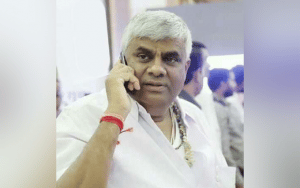 There is an old saying that goes, “Home is where the heart is!” It is indeed true, especially if you have found the house of your dreams. The joy of holding the keys in your hand and making plans to turn the empty space into the perfect place to unwind and create memories is simply unmatched. After all, it is a dream to have a spacious living room, where the entire family can gather and spend quality time together!
There is an old saying that goes, “Home is where the heart is!” It is indeed true, especially if you have found the house of your dreams. The joy of holding the keys in your hand and making plans to turn the empty space into the perfect place to unwind and create memories is simply unmatched. After all, it is a dream to have a spacious living room, where the entire family can gather and spend quality time together!
Though moving into your dream home is an incredibly exciting time, you need to understand that your home is not just an emotional investment but also a financial one. Therefore, your financial planning should not stop once you sign the dotted line and collect the keys. There are certain things that you must tick-off from the financial checklist so that you do not throw your finances off-kilter.
- Replenish your emergency fund
Chances are that you may have used a substantial part of your cash savings, if not all, for the down payment and home-buying fees. Therefore, it’s essential to replenish your emergency fund as soon as you can. Though this may sound optional, it’s absolutely not, as uncertainties are inevitable. Therefore, have healthy three to six month’s cushion of fixed expenses dedicated to emergencies. It would act as a fall-back in the event of medical emergencies or job loss. This way, if anything interrupts your steady lifestyle, you will be able to cover at least your basic expenses such as home utilities and mortgage payments. - Create a budget and stick to it
For new homeowners, it’s essential to take a good look at their budget as many aspects of the old budget may require a change now. For instance, you may need to factor in home loan EMI’s in your new budget. Not only this, your household utilities would change as well, especially if your new home is bigger than the house that you previously lived in.
Therefore, create a new budget and perform a financial audit to get your expenses on track. For this, make a list of all your expenses, including, groceries, home loan EMIs, utility bills, daily cups of coffee or movie nights. To curb unnecessary spending, separate this list into necessary expenses and optional expenses. For example, your utility bills and EMIs are necessities, but your movie nights are not.
By doing this, you can remove the unnecessary spending out of your budget and get your finances under control. - Buy term insurance
Your house is the place that your family calls home and is likely your biggest investment. Therefore, if you have taken a home loan, it’s important to make sure that you have term insurance in place. Term insurance will ensure that your loved ones are adequately prepared to adhere to the mortgage repayments in case of your untimely demise.
This is especially important if you are married and don’t want to leave your better half burdened with debt. Term insurance can provide a substantial amount in the event of your demise, which would be enough to cover the living expenses of your family or pay the college fees of your children.
If you already have term insurance, it’s a good time to revisit the same and evaluate whether you have enough coverage. If not, update your coverage. You can even make use of term insurance calculators provided by insurers like Future Generali to understand the required sum assured as well as the premium amount.
Term insurance plans in India are the best tax saving investments available today. You can get income tax benefits on the premium paid (u/s 80C), and the death benefit is entirely tax-free too (u/s 10 (10D). So, if you are looking for tax saving investments that can offer substantial life cover to your loved ones and also take care of your home loan in your absence, term insurance plans in India are your best bet. - Avoid taking new debt
Your house mortgage is one of the biggest obligations that you owe. This is the reason why you must avoid taking new debt for at least a year. Likewise, keep your credit card transactions as low as possible. This way, when a cash crunch comes, you don’t have to worry about making too many payments.
If you absolutely must use your card, ensure that the amount is something that you can pay in full when finally the bill comes. Remember that it’s all about efficiently handling your home loan before you add anything new.
By following this checklist, you can begin your life in your dream home on the right financial path. Most importantly, these financial to-dos will serve the essential purpose of ensuring that you are financially prepared for the next milestones of your life.
















